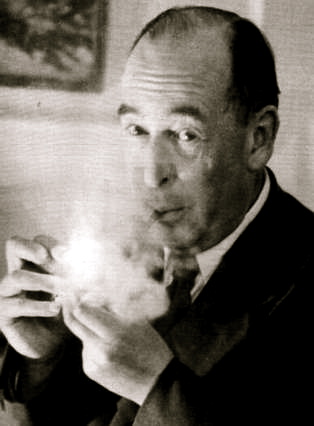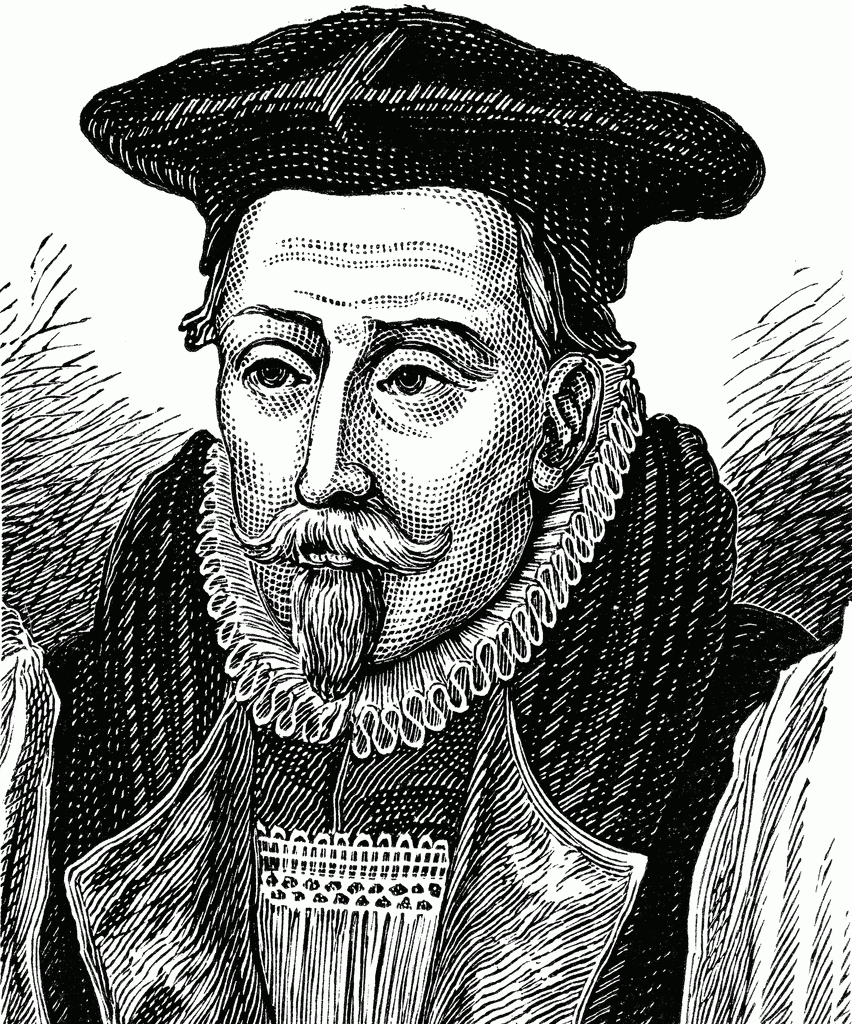Sermon at Good Shepherd Lexington from Sunday, August 25, 2019. As always, the audio is an expansive version of the text below.
Proper 16 (21) (August 25, 2019)
First reading and Psalm
• Jeremiah 1:4-10; Psalm 71:1-6
Second reading
• Hebrews 12:18-29
Gospel
• Luke 13:10-17
For “you have come to Mount Zion and to the city of the living God, the heavenly Jerusalem!” Amen.
It has been a busy week for many of us in Lexington. At UK, we welcomed the university’s largest first year class ever and whether you work on campus, have a child going to UK, or simply live in this community, you could not escape the fact that thousands of people were making the journey to campus and their new home. For some, the distance was short, just a few miles, but for others it was literally thousands of miles, as they came from around the world to our little patch of bluegrass.
In this case, it is a literal journey that these students (and their families) are taking, but we often use the image of a journey as a metaphor for when we talk about our transitions in life. It is appropriate because while we may not always be physically traveling, we are moving from one place in our lives to another. It may not be college, it might be starting your first job or moving to a new one, we might be entering into or leaving a marriage. It can be grieving the loss of a loved one or preparing to welcome a new member into your family. We traverse a space of emotions, perspective, and identity. One day we were one person, the next day we are…the same person but…someone more, different, changed.
Our curious reading from Hebrews is the culmination of this great sermon which outlines humanity’s great journey, as the Preacher takes us from the creation of the worlds through the Son, to Israel’s history of great faith and perseverance, to the heavenly Jerusalem. (Feel free to look at it again in your bulletin.) You may not be surprised to learn that Hebrews is one of my favorite books in the Bible. It is often referred to as a “letter” but it is actually a sermon, where the Preacher sketches out for his congregation how Jesus, the Son of God and David, is also the Great High Priest and the ultimate sacrifice for our sins. The preacher shows how this history of Israel was not some sort of preamble or placeholder before the “real” people of God came along (us Christians) but rather how we are all God’s people and how God used all of history to reveal himself to the world. It is, in short, a “holy history,” from creation to salvation.
The Preacher is describing the journey humanity has been on, from trembling in fear at the foot of Mount Sinai as the Law of God was received, to the mountain that cannot be touched, Mount Zion, the city of the living God and our new and eternal home. The history of humanity is also our own, personal history, as each of us grow and develop. Beginning with a basic understanding of right and wrong, we grow to see the world more fully, with its complexity of love and joy as well as sorrow and struggle. Then we hear in the Gospel the voice of one “speaking from heaven” and proclaiming God’s love for us, the healing that Jesus brings into our lives.
On Tuesday night, I addressed our incoming honors students at UK and reassured them that yes, as your parents have told you, this will likely be the best 4 or 5 years (or 6 in my case) of their lives. But I warned it may also be their toughest. Life happens that way. We get the good and the bad together, and learning how to walk through the bad while holding on to the good is a key to our health and success. We cannot avoid the difficult times and, I told them, while you have to do this yourself, you will not do it alone. I wonder where I got that idea from…?
See, if you think back to our readings in Hebrews of the last few weeks, the chapters leading up to our passage today, the Preacher is retelling the story of how we walk in faith, through the darkest of valleys and arrive at the holiest of places. He talks about our faith being “the assurance of things hoped for, the conviction of things unseen.” Meaning that we move forward, we act, not because of some sort of mathematical certainty, but because we trust in the promises of God.
So the author recalls the examples of the faith of those who have gone before us, of Abraham and Rehab, of the Israelites crossing the sea as if on dry land and the faith of the Judges and the Prophets. But he also spoke of their perseverance that was needed to make this great journey.
The testimony of Scripture is not of an easy life that is free from all trouble once you decide to follow God, quite the opposite. Jesus has warned us, as Father Hendree illustrated so vividly last week, that following Jesus, loving him and loving others as God does has grave consequences. Abraham felt the presence of God in his life and it moved him to move his family, from Ur of the Chaldees on a journey of thousands of miles on foot. It was not easy. Yesterday was Commemoration of St. Bartholomew, who tradition says was martyred for preaching the Gospel in Armenia and we could add the lives of those in Sri Lanka who were killed on Easter Sunday this past year.
Following the calling of God does not promise us an easy journey, but one on which we are never alone and which ends at his holy mountain. (Which, in spite of what Sewanee grads may say, is not in Tennessee.) On this journey, every step of the way, God is with his people as they walk in faith. It makes one think about that poster of footprints in the sand.
It was, in fact, when I was in college that I first saw that inspirational poster. A friend in our Christian fellowship had it on her wall. There is a lovely picture of a sandy beach with two sets of footprints walking along, just above the surf, and then there is only one set. The text on the poster usually says something like, “Lord, you promised to always be with me, but in the most troubling times of my life, I only see one set of footprints.” The Lord responds, “My child, I will never leave you. When you saw only one set of footprints, that was when I carried you.”
It is a lovely image and of course it follows the well-worn metaphor of our life as a journey with God as our companion. Yet it obfuscates, it obscures the reality and nature of the path we walk upon. You and I both know that the shore is often hard and rocky, footprints, if they can be seen, will always include our own as well. God does not leave us, but we still must make the passage with our feet on the ground. And then there are the footprints of all the other pilgrims who are alongside of us as well.
Our struggles and sorrows may be our own, yet we are not alone. God is with us as are all the Saints who have gone before and those Saints who are with us and walk alongside us now. Last week’s reading from Hebrews ended with this encouragement.
Heb 12:1 Therefore, since we are surrounded by so great a cloud of witnesses, let us also lay aside every weight and the sin that clings so closely, and let us run with perseverance the race that is set before us, 2 looking to Jesus the pioneer and perfecter of our faith, who for the sake of the joy that was set before him endured the cross, disregarding its shame, and has taken his seat at the right hand of the throne of God.
That is what we are moving towards, running towards, the throne of God in the heavenly Jerusalem. We are on the road to Mount Zion. Every step brings us closer, even and perhaps especially those steps that are most painful, and we must never lose sight of that. There is now a purpose and meaning to our movement. Not simply that we are making our way to that “festal gathering” with “innumerable angels” (I love saying “festal”), but because in setting us on this path, Jesus did so with the command that we make disciples of all nations and “love one another as I have loved you.” And he is with us on this journey, even until the end of the age.
God is calling us to his holy mountain, to our true home, and into his love. We make that journey by heeding his voice, the call of the Gospel rooted in his Law of love that is not mean or burdensome but whose greatest commandment is to love the Lord our God with all our being and the second “is like unto it,” that we love our neighbor as ourselves. This is how we make the journey, through the deepest darkest valley and over the highest hill. Today, hear the Good News of Christ and come to his table, accept his gift and receive the blessing of eternal life, and journey up to Mount Zion, the city of the living God. Amen. ✠
Benediction:
Heb 13:20 Now may the God of peace, who brought back from the dead our Lord Jesus, the great shepherd of the sheep, by the blood of the eternal covenant, 21 make you complete in everything good so that you may do his will, working among us that which is pleasing in his sight, through Jesus Christ, to whom be the glory forever and ever. Amen.
Amen. ✠





